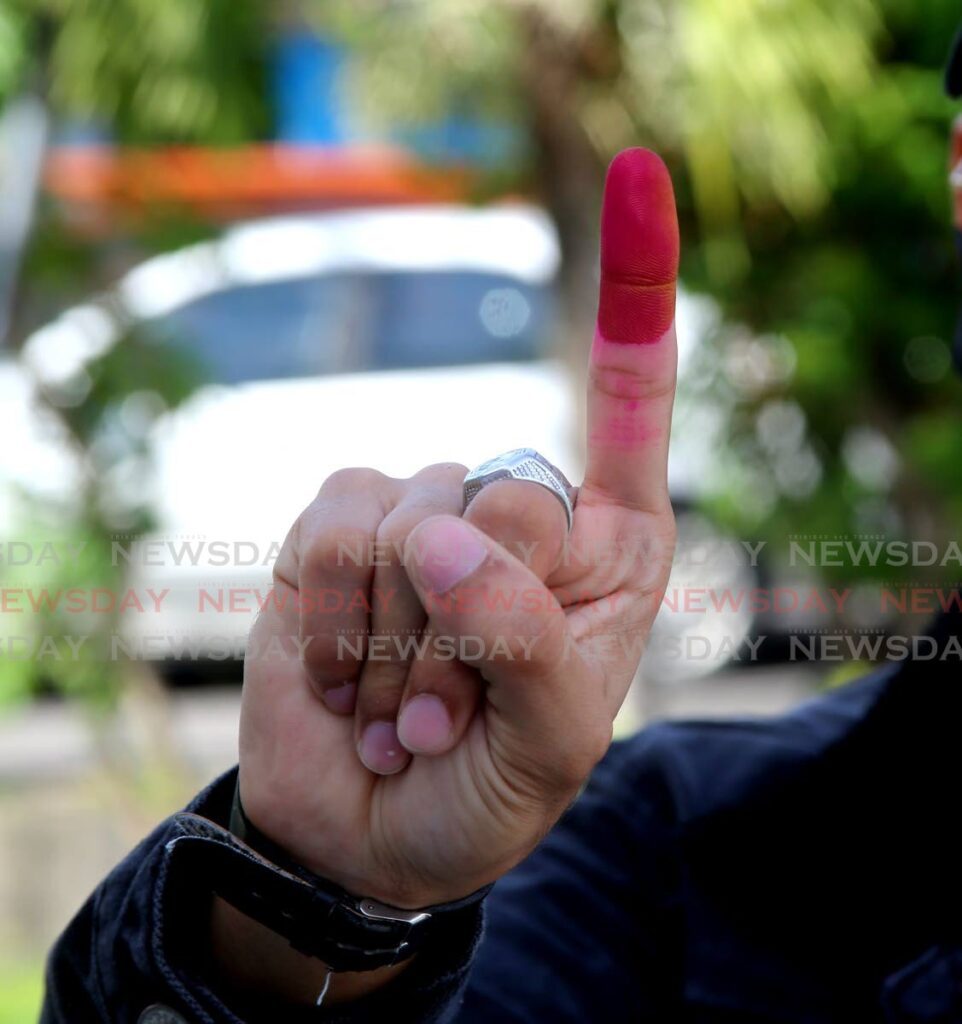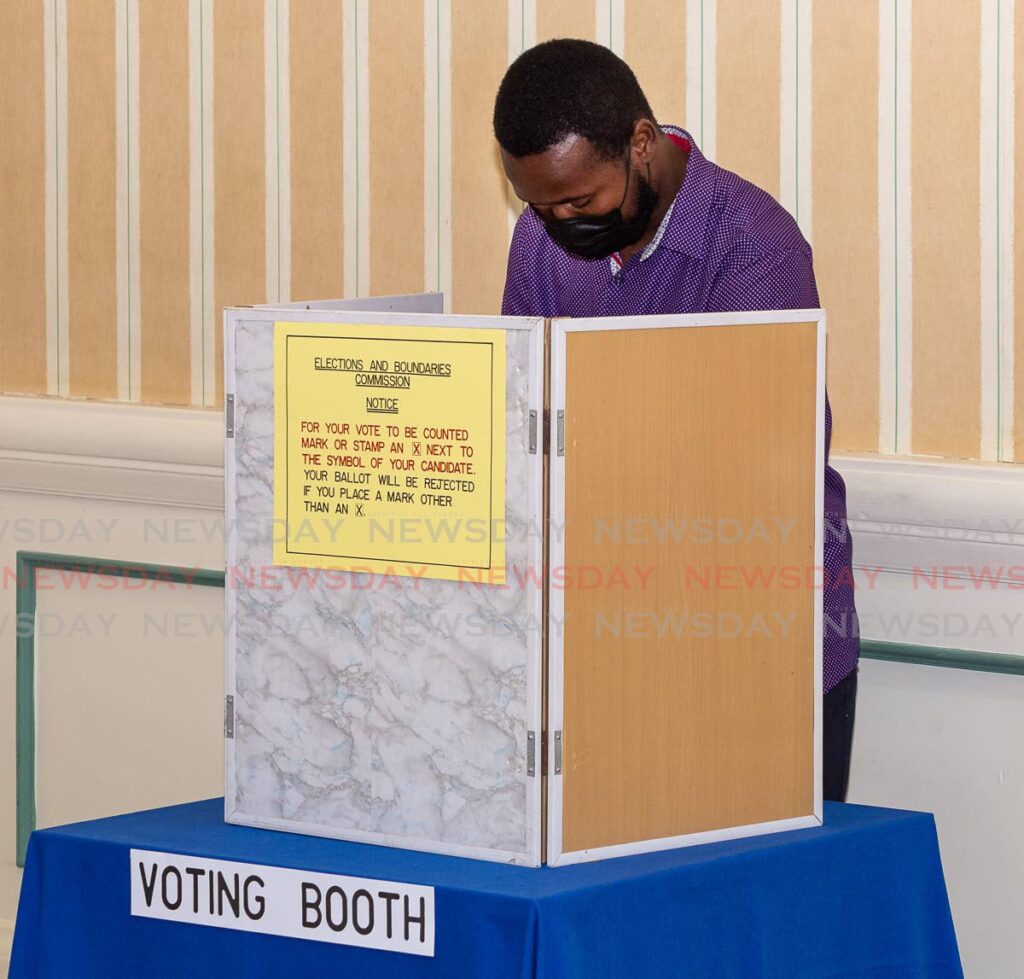Principles of democracy: One man, one vote

At the beginning of a calendar year, human resource managers are usually sequestered with financial and other executives to calculate factors that, if they are any good at their jobs, will largely influence the fortunes of the organisation by the end of its financial year.
The calculations will include the results of last year’s markets; the outstanding results of world politics, wars, social and economic developments; and the extent to which climate change and health crises affect our own governance.
Trinidad and Tobago is in for a lot of change this year. And, I suspect, a lot of conflict.
When uncertainty is dominant in life, marriage and politics, our vision going forward is wobbly. Especially at this most early planning or pre-planning stage, it can be particularly dangerous.
Vidia Naipaul, of Nobel Prize stature, called us "mimic men." That was illustrated when, before our last general election, Mr Trump boasted over the international airwaves that he knew how to avoid paying income tax.
Within weeks, dozens of people in TT believed it was socially acceptable to do that as well, and tried it – under the old-time principle of "if the priest could play mas…who is we?"
Lawyers, doctors, medical staff and self-employed professionals, the ones who were not already doing so, demanded that their services be paid for in cash or personal cheque.
That way they too could, they thought, avoid paying tax on their earnings. Mimic men in truth.
Since then, TT has established a new Revenue Authority (IRA) and Mr Trump faced 34 criminal charges for tax evasion, in the state of New York alone.
He will probably get away with it by passing legislation that exempts presidents from penalties for breaking the law at the price of the moral reputation throughout the world of American legislators.
We don’t have that law here. But once again, as the financial planners struggle with their annual budgets throughout the business community, we must remember that we do have laws established by Parliament to protect us.
We do have legislation – the Equal Opportunity Act. It has a governing body called the Equal Opportunity Commission and anyone who feels they are discriminated against because of sex, race, ethnicity, origin (including geographical origin – please note geographical status includes Venezuela, and the act specifically includes education; just thought you should know), religion, marital status and disability.

Section 15 (1) of the act states, "Subject to any agreement or practice between the state and any educational establishment, board or other institution, an educational establishment shall not discriminate against any person:
(a) By refusing or failing to accept that person’s application for admission as a student: or
(b) The terms and conditions on which it admits him as a student."
It reminds us of the purpose of that act, the fact that our Constitution tells us we are a country ruled by law and by certain legal democratic principles.
It also brought up a timely response from prominent members of the public, including a lively discussion over the concept of "one man, one vote."
On Tuesday, a news report highlighted the views of Jennifer Baptiste-Primus, former president of the Public Services Association, saying the outgoing PM's decision to step down and not lead the PNM into the next election is a manipulation of democracy. Her point is that for as important an issue as determining who will be the leader of the PNM, that exercise should not be decided by one man, whoever he may be, but by the majority of the party that put him in that position in the first place. That is, in fact, what the PNM's constitutional procedure requires.
Jennifer Baptiste-Primus has been a senior member of the PNM for as long as I can remember. I am not a member of that or any other political party, but I am a strong believer in the adherence to the rules and processes of a party once you have agreed to belong to it, as Jennifer certainly has. Her considered view is that forcing a vote as to the future leader of the PNM on the executive alone and publicising the outcome of that vote by an elite minority is a crass manipulation of the democratic process that the PNM is committed to.
What about the thousands of PNM members who will be thus directed to follow someone they have not been given an opportunity to choose to be their leader? Her trenchant description of that is "manipulation." Whatever happened to "one man, one vote?"
Is this the harbinger of a new system of governance? Just as there was one man who accepted the recommendation (not the decision) that he should be granted a 37 per cent increase in salary plus a million dollars' back pay for his own benefit.
Dr Rowley has, by the vote of an executive group which he heads, decided who will succeed him in the dual capacity of prime ministerial candidate and party head.
Energy Minister Stuart Young won that vote by 11 to nine, and neither of the two main contenders was barred from voting for themselves: why should they be?
Has everyone forgotten that there are two more stages constitutionally to follow before the final outcome can be realised?

Comments
"Principles of democracy: One man, one vote"